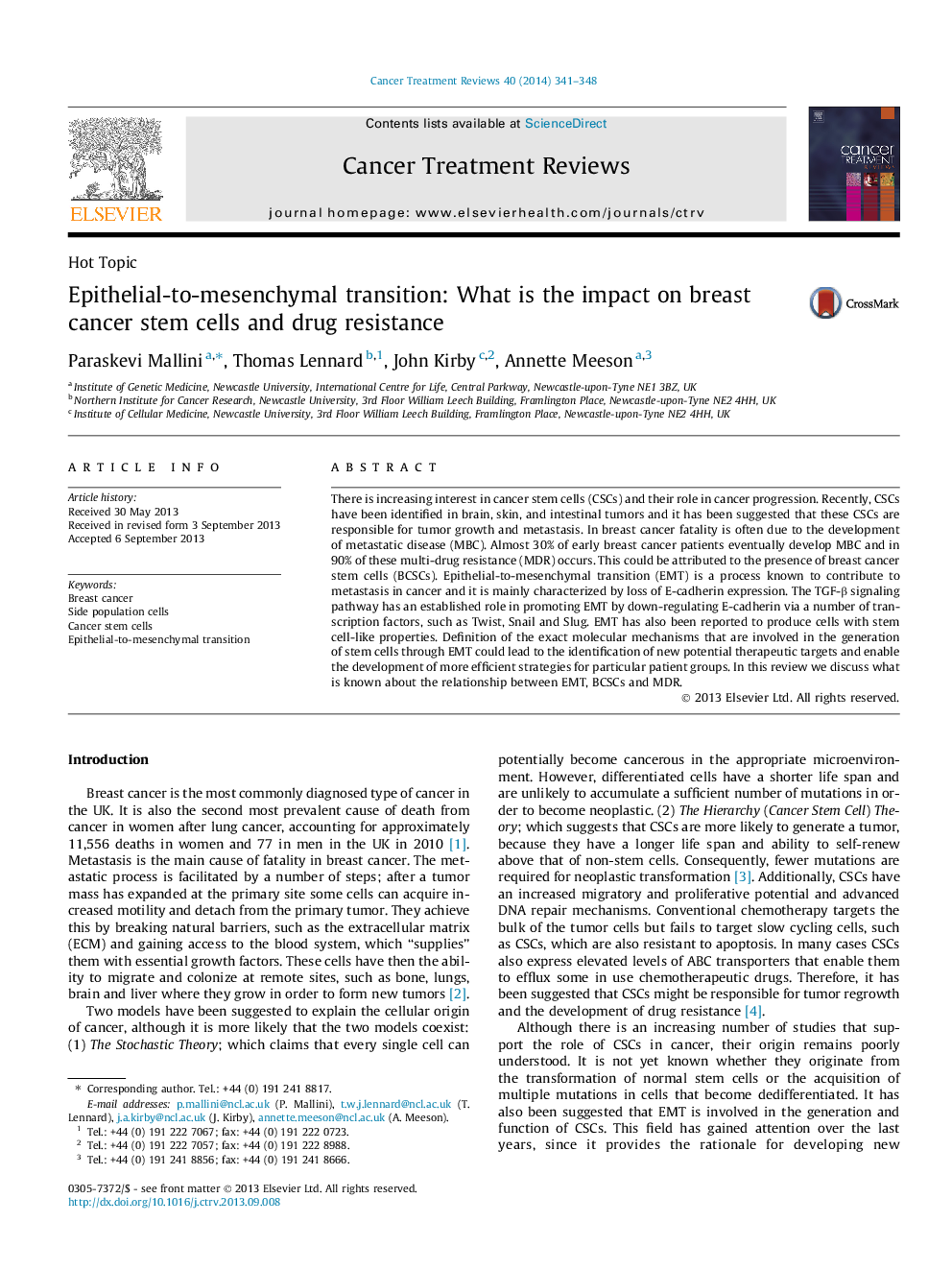| Article ID | Journal | Published Year | Pages | File Type |
|---|---|---|---|---|
| 6190610 | Cancer Treatment Reviews | 2014 | 8 Pages |
There is increasing interest in cancer stem cells (CSCs) and their role in cancer progression. Recently, CSCs have been identified in brain, skin, and intestinal tumors and it has been suggested that these CSCs are responsible for tumor growth and metastasis. In breast cancer fatality is often due to the development of metastatic disease (MBC). Almost 30% of early breast cancer patients eventually develop MBC and in 90% of these multi-drug resistance (MDR) occurs. This could be attributed to the presence of breast cancer stem cells (BCSCs). Epithelial-to-mesenchymal transition (EMT) is a process known to contribute to metastasis in cancer and it is mainly characterized by loss of E-cadherin expression. The TGF-β signaling pathway has an established role in promoting EMT by down-regulating E-cadherin via a number of transcription factors, such as Twist, Snail and Slug. EMT has also been reported to produce cells with stem cell-like properties. Definition of the exact molecular mechanisms that are involved in the generation of stem cells through EMT could lead to the identification of new potential therapeutic targets and enable the development of more efficient strategies for particular patient groups. In this review we discuss what is known about the relationship between EMT, BCSCs and MDR.
